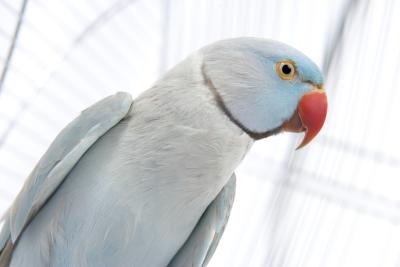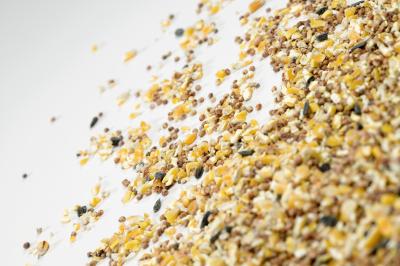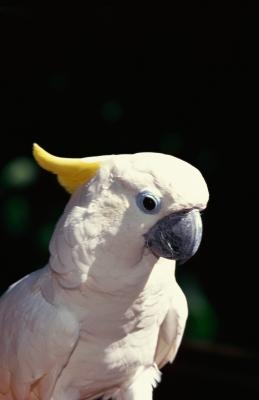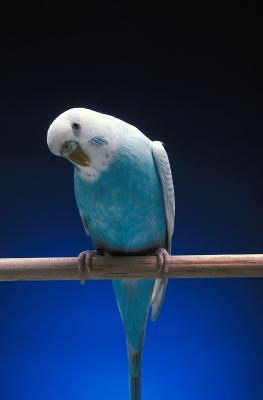The Bernese Mountain Dog is actually an outdoor dog that can adapt to indoors as long as she is given plenty of exercise when it is cool outside. Her heavy coat means that she is comfortable in the cold but suffers in the heat. She has a loving temperament and has been described as stable, faithful, affectionate and intelligent. She is a good watch dog and good with children. Just as a reminder, never leave young children unsupervised with a puppy or dog for any length of time.
*Approximate Adult Size. The approximate adult size (two years old or older) of the male Bernese Mountain Dog is 24 to 28 inches to the withers (highest point of the shoulder) and 85 to 110 pounds. Females range from 23 to 27 inches to the withers and from 80 to 105 pounds.
*Special Health Considerations. Most dog breeds have certain inherited health problems associated with that specific breed and the Bernese Mountain Dog is no exception. Be on the look out for canine hip and elbow dysplasia (genetic based looseness in the hip joint that can lead to arthritis pain and lameness), gastric torsions, metabolic bone disease and hereditary eye disease. She should be fed twice a day to lessen the chance of bloat, another negative health consideration. Additionally, cancer is a real problem with even young dogs can contract it.
*Grooming. The Bernese Mountain Dog has a long, thick coat so she should be brushed as frequently as daily, weekly if time does not permit. She is a heavy seasonal shedder and brushing will help keep your house cleaner. Brushing will help her maintain a clean and healthy coat and also help you keep a closer eye on her health and strengthen your emotional bond with your pet.
Her teeth should be brushed at least twice a week with toothpaste and toothbrush designed for dogs. Brushing removes the accumulation of plaque and tartar which can cause cavities (rarely) and periodontal disease. Dog periodontal disease can lead to pain, loss of teeth, bad breath and other serious disease.
Her toenails may need to be examined for growth and clipped regularly. The toenails of the rear feet grow slower than the toenails of the front feet. Generally a guillotine type trimmer is the best for this chore and competent instructions to accomplish this can be found on the net.
*Life Span. The Bernese Mountain Dog can live between 8 and 10 years with proper nutrition, medical care and excellent living conditions.
*History. The Bernese Mountain Dog came from the pre alpine regions around Bern, Switzerland. She was used as a cattle dog, draught dog and as a cattle driver. The original name of this dog was Durrbachler, because it was so popular in the hamlet of Durrbach. Around 1910 a standard for this dog was set and she was renamed the Bernese Mountain Dog. She became popular throughout Switzerland and Southern Germany. From there she became known throughout the world as a striking family dog. The American Kennel Association first registered Bernese Mountain Dogs in 1937. Currently she is used as pet and watch dog, for therapy work, agility trials, and rescue work.
Some Registries:
*BMDCA-The Bernese Mountain Dog Club of America
*UKC United Kennel Club
*NKC National Kennel Club
*CKC Continental Kennel Club
*APRI Americas Pet Registry Inc.
*AKC American Kennel Club
*FCI Federation Cynologique Internationale
*NZKC New Zealand Kennel Club
*KCGB = Kennel Club of Great Britain
*ANKC = Australian National Kennel Club
*ACR = American Canine Registry
Litter Size: 4 to 10 Bernese Mountain Dog puppies
Category: Herding, Mastiff Family
Terms To Describe. Devoted, stunning, companion, friendly, devotion.
*SPECIAL GOOD POINTS
She is very beautiful.
Prefer cool climates.
Natural watch dog.
Good with children.
She is willing to please.
She loves people.
*SPECIAL BAD POINTS
Heavy shedder.
Cautious with strangers.
Short life span.
Major health problems.
May suffer in hot climates.
Can become destructive if bored.
*Other Names Known By: Berner Sennenhund, Bernese Cattle Dog

 Brinsea Spot Check Thermometer
Highly Accurate Digital Spot
Brinsea Spot Check Thermometer
Highly Accurate Digital Spot
 How Do I Know If My Bird Has Mites?
How Do I Know If My Bird Has Mites?
Ho
How Do I Know If My Bird Has Mites?
How Do I Know If My Bird Has Mites?
Ho
 Homemade Designs for Bird Traps
Homemade Designs for Bird Traps
Homema
Homemade Designs for Bird Traps
Homemade Designs for Bird Traps
Homema
 Which Birds Emit Dander?
Which Birds Emit Dander?
Which Birds E
Which Birds Emit Dander?
Which Birds Emit Dander?
Which Birds E
 How to Kill Mites in Caged Birds
How to Kill Mites in Caged Birds
How t
How to Kill Mites in Caged Birds
How to Kill Mites in Caged Birds
How t